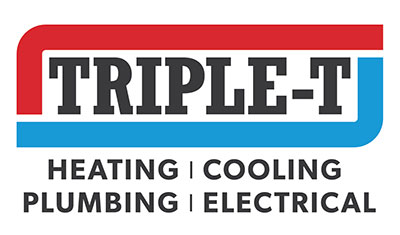Choosing The Best Water Heater for your Home
It happens to all of us. You turn on the shower, let it warm up, and then step in to find only cold water coming from the shower head! YIKES! That’s not a surprise any of us want!
Replacing a worn out water heater can be confusing, because there are so many different kinds, so many different fuels to heat the water, so many sizes, and the prices are all over the block. Well, we’re here to try and help you understand the products on the market and to determine which one is best for you and your family.
Types of Water Heaters
- Conventional storage water heaters have been around for a long time and provide a storage tank of ready hot water which is adequate for everyday use. The water is kept at a desired temperature, and reheated when necessary. When more than one person or appliance is using the hot water at the same time, you can run short.
- Tankless or demand type water heaters heat the water directly without the use of a storage tank. If they’re adequately sized for your home, they will provide an endless supply of hot water. While the endless supply of hot water is a selling point, the initial cost of the heater and the installation can be significantly higher than a similar capacity storage tank heater
- Solar water heaters use the sun’s heat via collectors to provide hot water and save money on energy bills.
- Tankless coil water heaters use a home’s heating system to heat the water.
- Heat pump water heaters use electricity to move heat from one place to another and can offer high efficiency and energy savings.
Fuels Used to Heat the Water
- Electricity: Water heaters fuelled by electricity are generally considered to be the safest and the most efficient.
- Fuel oil: Fuel oil fired water heaters have a high recovery rate and low operating costs.
- Natural gas or propane: A natural gas or propane water heater may cost more initially but will usually use less energy than the same capacity electric water heater.
- Geothermal energy: This source gathers heat radiating from the center of the earth via a ground sourced heat pump
- Solar: while solar energy can do the job, in most climates solar water heaters have to be supplemented to provide a constant source of hot water.
What Size Water Heater Do I need?
Ultimately the best sized water heater will be the one that provides adequate hot water to suit the needs of you and your family. For a standard storage type water heater, you’ll need to determine how much hot water you family is using on a daily basis.
To get an accurate estimate, you need to consider all the uses of hot water and how many gallons of water are needed for each. Between the dishwasher, the washing machine, home cleaning, food prep, and baths or showers, it’s estimated that most Americans consume around 100 gallons of hot water per day. The number of people in your household can also help you choose the right size for your needs.
1-2 occupants-23 to 36 gallons
2-3 occupants-36 to 46 gallons
3-4 occupants-46 to 56 gallons
5-6 occupants-56 to 80 gallons
6-7 occupants-80 to 100 gallons
7 or more occupants-100+ gallons
If you purchase a tankless water heater, you have no tank, so you would expect to have an endless supply of hot water, but these water heaters are limited by their flow capacity which can also very from one household to another. Water heaters come with varying flow rates. Often the best way to select the size you need for a tankless heater would be to consult a professional.
How to Save Money on Your Hot Water Use
There are some steps you can take to reduce the energy costs associated with your hot water usage. Here are a few:
- Replace your current water heater with the most energy unit you can afford.
- Lower the temperature setting on your water heater. If the current setting is 120° or more, turn it down. Each 10° change will save 3% to 5% on your hot water costs.
- Fix leaky water faucets. A slow leaking faucet can waste hundreds of gallons of water each year.
- Install low flow faucets and shower heads. There are many varieties of low flow fixtures. Some are designed with special features to compensate for the flow rate, so you won’t feel a difference in water pressure.
- Use less hot water. This is a no brainer. Take showers instead of baths or take shorter showers.
- Wash clothes in cold water. Modern detergents perform just as well in cold water as in hot.
- Install a timer on your hot water heater. With a timer, you can turn off the water heater at times of low demand.
- Insulate the pipes connected to your hot water heater and insulate the water heater itself.
- Install a tankless water heater. While this will require a higher initial expenditure, you should be able to recoup the difference over time.
Selecting a new water heater is a big decision, one that will be with you for upwards of 15 or 20 years. With so many options as to fuel source, size, flow rates, different types of water heaters, and various energy ratings, consulting a professional is probably the best option. They can help guide you to the right choice. For assistance with this decision or any other plumbing needs, contact the experts at Triple T Plumbing, Heating and Air.
Established in 1974, we are a family-owned and operated business dedicated to serving our community in the area of heating and air conditioning, air quality services, and plumbing. With a commitment to customer satisfaction and over 40 years of hands-on experience, our team can be trusted with virtually any service challenge. Visit our website, or contact us at 801-307-4835 in Utah County or 435-258-9864 in Washington County.


